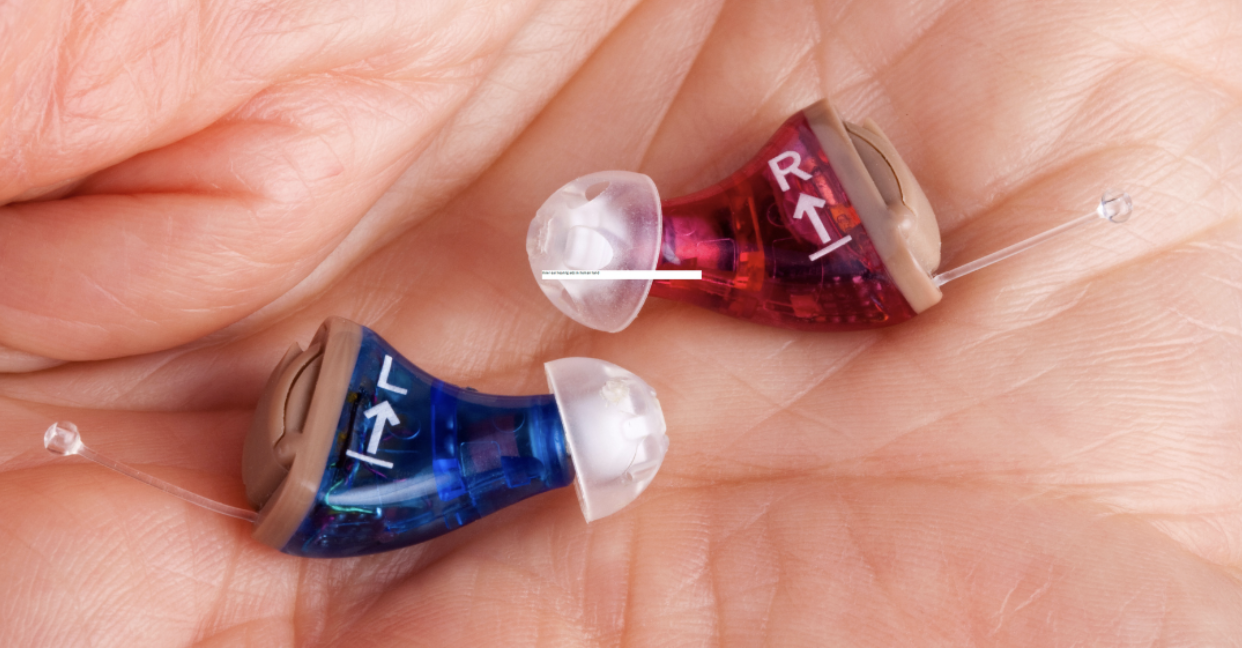That persistent ringing in your ears isn't just in your head – and you're not alone; millions of Americans struggle with this condition, known as tinnitus, every day. Tinnitus can manifest as buzzing, hissing, or even sounds resembling crickets chirping, explains Dr. Seth Willen, an ENT specialist at Western Reserve Hospital.
"Tinnitus describes a sound that people hear without a clear external source," says Dr. Willen. "It's something that's coming from the ear directly, and while it's not imaginary, it's not an external noise. It's usually a sound generated somewhere between the ear and the brain."
Understanding tinnitus is crucial for those experiencing it and their loved ones, as it can significantly impact daily life and overall well-being. Whether you're newly experiencing these symptoms or have been dealing with them for years, knowing what you're up against is the first step toward effective management.
Key Takeaways:
- Tinnitus is often linked to hearing loss but can occur independently
- Prolonged exposure to loud noises is a major risk factor
- Stress, fatigue, and lifestyle factors can worsen symptoms
- Treatment involves addressing underlying causes, managing symptoms, and lifestyle adjustments
- Ongoing research offers hope for more effective treatments
What Is Tinnitus?
Tinnitus is more complex than simply "ringing in the ears." While that's often how it's described, the condition can manifest in various ways. Some people hear hissing or buzzing, while others describe it as chirping or even the sound of electrical appliances running in the background. Tinnitus is unique because these sounds originate internally rather than from external sources.
"It's not that you're imagining it," Dr. Willen emphasizes. "The sound is being generated internally, usually somewhere between the ear and the brain, though we're not always sure exactly where."

Common Causes and Risk Factors
The relationship between tinnitus and hearing loss is significant. According to Dr. Willen, almost everyone who experiences tinnitus has some degree of hearing loss, often in the same frequency range where they perceive the tinnitus sound. However, there are exceptions to this rule.
Some people experience "physiologic tinnitus," a temporary condition that can occur even in those with normal hearing. This can happen when the sophisticated muscular structure behind the eardrum contracts to protect the ear from loud noises, resulting in a brief episode of tinnitus.
One of the most significant risk factors for developing tinnitus is exposure to loud noise, particularly over extended periods. "Excess noise exposure can cause damage to the very delicate nerve structures of the inner ear," Dr. Willen explains. "Usually, it's not just one exposure but continuous, long-term exposure that leads to injury of the nerve structures, resulting in hearing loss and tinnitus."
Certain occupations carry a higher risk for developing tinnitus:
- Construction workers
- Machinists
- Manufacturing workers
- Firefighters
- Police officers
- Airport ground crew
- Musicians
The Impact on Daily Life
Living with tinnitus can be incredibly challenging. "It is possibly one of the most frustrating things to deal with, just like chronic pain," Dr. Willen notes. "It can impact you, especially because people around you may not know you have it."
The severity of tinnitus symptoms often fluctuates based on various factors:
- Quiet environments can make the sound more noticeable
- Stress and fatigue can increase the perception of sound
- Background noise can help mask the symptoms
- Sleep can be significantly affected
Managing Tinnitus: Treatment Options and Coping Strategies
While there's no universal cure for tinnitus, several treatment approaches and management strategies can help:
Professional Evaluation
The first step is always a proper medical evaluation. "Have your ears examined properly and get your hearing tested," advises Dr. Willen. Sometimes, issues like earwax blockage or fluid behind the eardrum can cause or worsen tinnitus, and addressing these problems can bring significant relief.
Hearing Aids and Masking Devices
Hearing aids can often help reduce tinnitus symptoms for those with hearing loss. Additionally, tinnitus maskers can provide 24-hour relief by producing background sounds that help mask the tinnitus.

Lifestyle Modifications
Dr. Willen emphasizes several important lifestyle changes that can help manage tinnitus:
- Caffeine Management: "Having excess caffeine in your system might worsen tinnitus," Dr. Willen explains. While a morning cup of coffee is fine, excessive caffeine consumption can activate the brain's sound recognition centers and worsen symptoms. This is because caffeine stimulates the central nervous system, making it harder for your brain to filter out or ignore the tinnitus sounds. Consider tracking your caffeine intake and noting how different amounts affect your symptoms to find your personal threshold.
- Sodium Reduction: "The inner ear is filled with fluid that comes from your bloodstream," says Dr. Willen. High sodium intake can affect this fluid pressure, potentially impacting tinnitus symptoms. Just as excessive sodium can affect blood pressure throughout your body, it can also influence the delicate fluid balance in your inner ear. Try to maintain a moderate sodium intake by avoiding processed foods and using herbs and spices instead of salt to flavor your meals.
- Stress Management: When stress levels are lower and you're well-rested, the brain is better able to suppress tinnitus sounds. This makes stress reduction techniques like meditation, regular exercise, and adequate sleep crucial components of tinnitus management. Consider incorporating relaxation practices such as deep breathing exercises, yoga, or mindfulness meditation into your daily routine, as these can help reduce the perception of tinnitus.
- Physical Activity: Regular exercise helps reduce stress and improve blood circulation throughout your body, including to your ears. Aim for at least 30 minutes of moderate physical activity most days of the week. However, be mindful of extremely vigorous exercise or activities that strain your head and neck, as these might temporarily increase tinnitus symptoms in some people.
- Sleep Hygiene: Good sleep habits are essential for managing tinnitus, as fatigue can make symptoms more noticeable. Create a consistent bedtime routine and ensure your comfortable and quiet sleeping environment. Many people find that using a white noise machine or fan can help mask tinnitus symptoms during the night, making it easier to fall asleep.
- Diet and Hydration: Beyond managing caffeine and sodium, maintaining good overall nutrition and staying well-hydrated can help minimize tinnitus symptoms. Some people report that certain foods or beverages can trigger or worsen their tinnitus. Keep a food diary to identify potential triggers, and ensure you drink enough water throughout the day to maintain proper hydration.
The Science Behind Tinnitus
Dr. Willen offers a fascinating comparison to help understand tinnitus: "I like to think of it as sort of like phantom limb syndrome. People who lose an arm or leg may still feel those areas because the sensation still exists in the brain, even if the body part is missing. That's similar to tinnitus – the ability to hear certain frequencies might be missing, but the brain can still conceive of them."
This comparison helps illustrate the complex relationship between our ears and brain. The auditory system works through a constant feedback loop, with the ear sending frequency signals to the brain and the brain communicating back to the ear. This delicate balance is disrupted when hearing loss occurs, especially in specific frequency ranges. "Your brain is constantly monitoring everything happening," explains Dr. Willen. "If it's unable to sense certain frequencies, usually high frequencies, then it struggles. That's really where the source of the tinnitus comes from."
The inner ear contains thousands of tiny hair cells that convert sound waves into electrical signals for the brain to interpret. When these hair cells are damaged or lost, often due to noise exposure or aging, the brain may try to compensate for the missing input. This compensation can result in the perception of sound where none exists – what we experience as tinnitus. It's a reminder of just how sophisticated our auditory system is and how changes in one part can create ripple effects throughout the entire system.
Future Treatments and Research
The field of tinnitus research continues to evolve, offering hope for future treatments. Dr. Willen points to several promising areas of study:
- Transcranial magnetic stimulation
- Deep brain stimulation findings
- Cochlear implant effects on tinnitus
- Bloodstream factors that might differentiate tinnitus patients
"What's interesting is that patients who receive cochlear implants for severe hearing loss often report significant improvement in their tinnitus," notes Dr. Willen. "This gives us valuable insights into the connection between hearing restoration and tinnitus relief."
Advice for New Tinnitus Patients
If you've recently started experiencing tinnitus, Dr. Willen recommends taking these steps:
- Get a proper medical evaluation
- Have your hearing tested
- Address any underlying conditions
- Protect your hearing from further damage
- Consider lifestyle modifications
Hope and Help for Tinnitus Sufferers
While tinnitus can be a challenging condition to live with, understanding its causes and management strategies can make a significant difference in daily life. As Dr. Willen emphasizes, the key is to seek proper medical evaluation and develop a comprehensive management plan that includes both medical interventions and lifestyle modifications.
Research continues to advance our understanding of tinnitus, offering hope for more effective treatments in the future. In the meantime, protecting your hearing, managing stress, and working with healthcare professionals can help you maintain the best possible quality of life while living with tinnitus.
